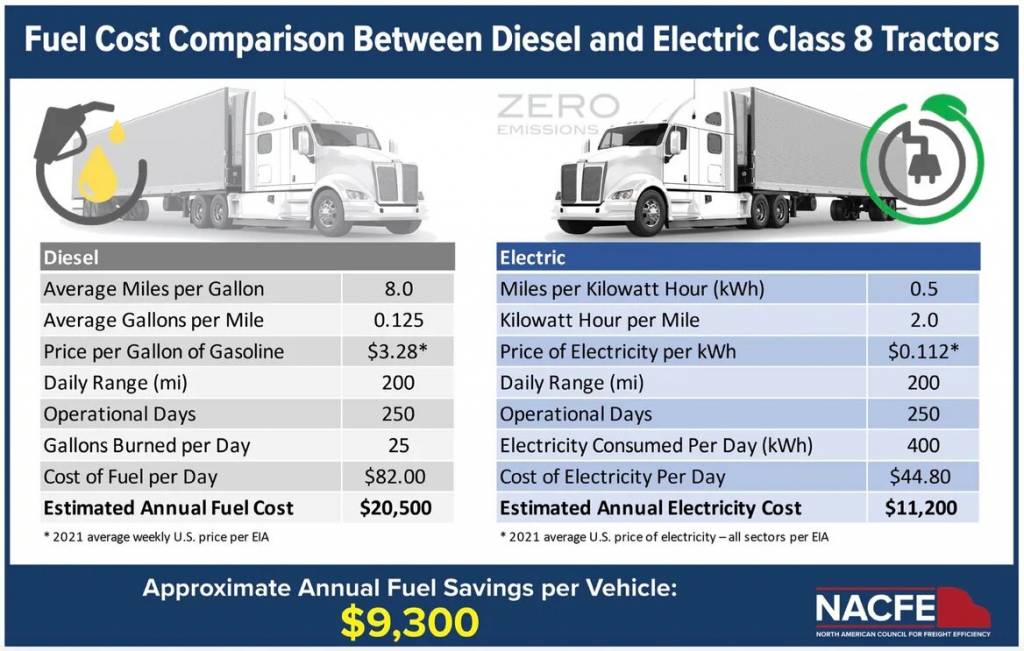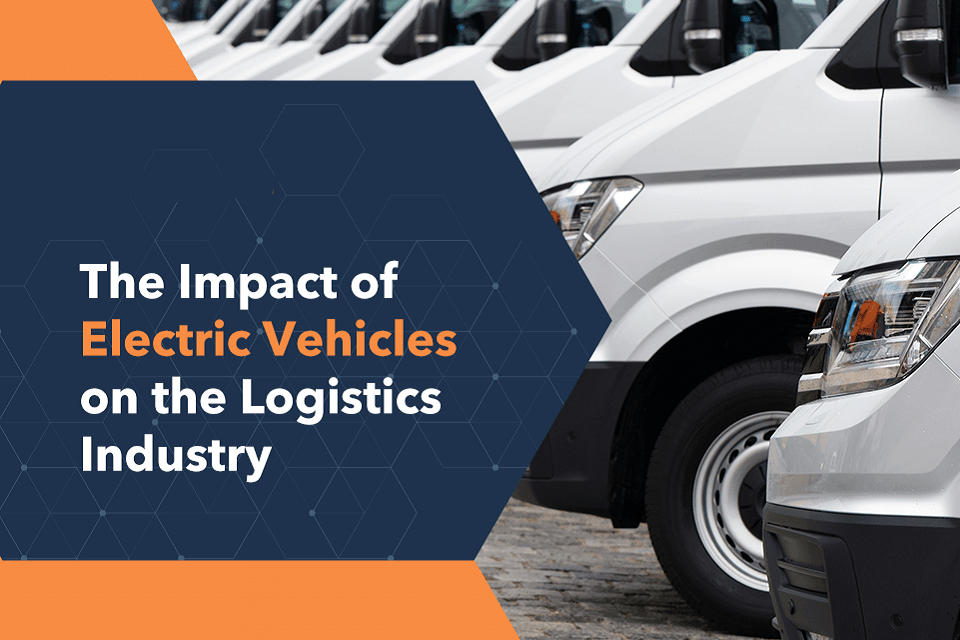It’s no secret that gas and diesel-powered vehicles are a leading contributor to greenhouse gas emissions (GHG.) The United States has pledged to achieve a 50-52% reduction in pollution levels by 2030. The U.S. also has set a goal for all new vehicles to be emission-free by 2030, and electric vehicles in logistics would play a key role in realizing this.
Today, current innovations in EV technology combined with new investor and government interest have opened the door for electric trucks to make their way to the highways in the coming years. However, challenges still stand in the way of industry-wide adoption. If you’re curious about what tomorrow could hold, read on regarding the potential future of electric vehicles in logistics.
What are electric semi trucks?
The term “electric truck” can refer to anything from a standard pickup truck to a full tractor-trailer. But in the logistics industry, electric truck usually refers to large-scale vehicles, such as electric 18-wheelers. Like their diesel counterparts, electric semi trucks are designed to haul cargo long distances.
Like other electric vehicles, electric trucks draw power from battery packs, which recharge by plugging into a power source. Some new innovative models even use a regenerative braking system, which converts kinetic energy created by breaking into electricity that can power the truck.
What are the potential benefits of electric vehicles in logistics?
Some of the more commonly cited benefits of electric trucks include:
More environmentally friendly
A 2023 study from the ICCT found that electric, battery-operated tractor-trailers produced at least 63% fewer emissions than their diesel counterparts. When combined with renewable energy, projections estimate a possible 92% emission reduction by adopting electric vehicles.
Increased energy security
The price of gas and diesel can fluctuate dramatically depending on global economic factors, which can affect end prices for both businesses and consumers. However, fully electric vehicles would reduce dependence on foreign sources of fossil fuels, making them a potentially more stable solution for shifting fuel prices.
Less noise pollution
Anyone who’s ever lived near a busy road can attest to the noise level of gas and diesel-powered vehicles. Additionally, noise pollution is linked to health problems, such as hearing loss, high blood pressure, sleep disturbances, and stress-related illnesses.
The engines in electric trucks don’t have the same deafening roar as their diesel counterparts, making them a viable solution for quieter roadways.
Potentially less expensive to operate
While the cost remains high, research indicates that electric trucks could become more affordable to own in the near future.
For example, a study from the National Renewable Energy Laboratory (NREL) concluded that electric trucks could potentially become an economically viable alternative to diesel trucks in certain operating scenarios.


What are the challenges of electric vehicles in logistics?
While the potential benefits of all-electric semi fleets abound, obstacles still stand in the way of more widespread industry adoption. Some potential challenges include:
Battery range and recharging
Depending on the model, it can take as long as 12 hours to fully charge an electric vehicle. Volvo suggests that most electric trucks would ideally need to be charged overnight at their home depot. So, lengthy charge times could present a challenge for long over-the-road hauls with tight schedules.
Infrastructure
Beyond lengthy charge times, the current infrastructure lacks charging stations. The U.S. has pledged to install 500,000 new EV charging stations. However, the rate of EV adoption is 40% lower in rural areas, and most current stations concentrate in urban areas or along busy highways. This could make it a challenge to use electric delivery trucks in locations without the infrastructure to support them.
Weather effects
Electric trucks may face operating difficulties in colder climates. In fact, tests on electric cars by Consumer Reports indicate that cold weather conditions could sap an EVs range by anywhere from 25-50%.
This is because EVs don’t create free heat from their engines like gas and diesel-powered vehicles do. Instead, they have to produce heat for the cabin through the battery, which can reduce the driving range as a consequence.
High cost
While innovations have been able to lower price tags, the upfront cost of going electric still isn’t cheap. New models from electric truck companies cost anywhere from $180,000-$500,000.
According to research from Carnegie Mellon University, industry conditions must be met to make electric trucks a viable economic alternative, including low-battery pack cost, low electricity price, and a high life cycle.
Alternatives to electric vehicles in logistics
While electric-powered vehicles tend to dominate discussions on renewable energy, some experts have proposed other alternative fuel sources for the trucking industry, such as:
- Hydrogen
- Biodiesel
- Propane
- Ethanol
Learn more about the pros and cons of each potential option on our blog.
Conclusion: Future of electric vehicles in logistics
Electric trucks present the opportunity for a more environmentally friendly logistics industry with quieter roadways and less dependence on expensive fossil fuels. However, they aren’t without their drawbacks, such as lengthy charging times and a high price tag. Despite this, many experts believe that electric trucks will lead the charge for greener highways.
If you need a transportation company that can support your business here and now, N&D Transportation Company Inc is at your service.
As a New England trucking company, we can help you find the most economically viable solution for your logistics needs with direct fulfillment throughout the New England area and nationwide distribution services with the help of our partner carriers. Contact us today to learn how we can help in this changing economic landscape.



